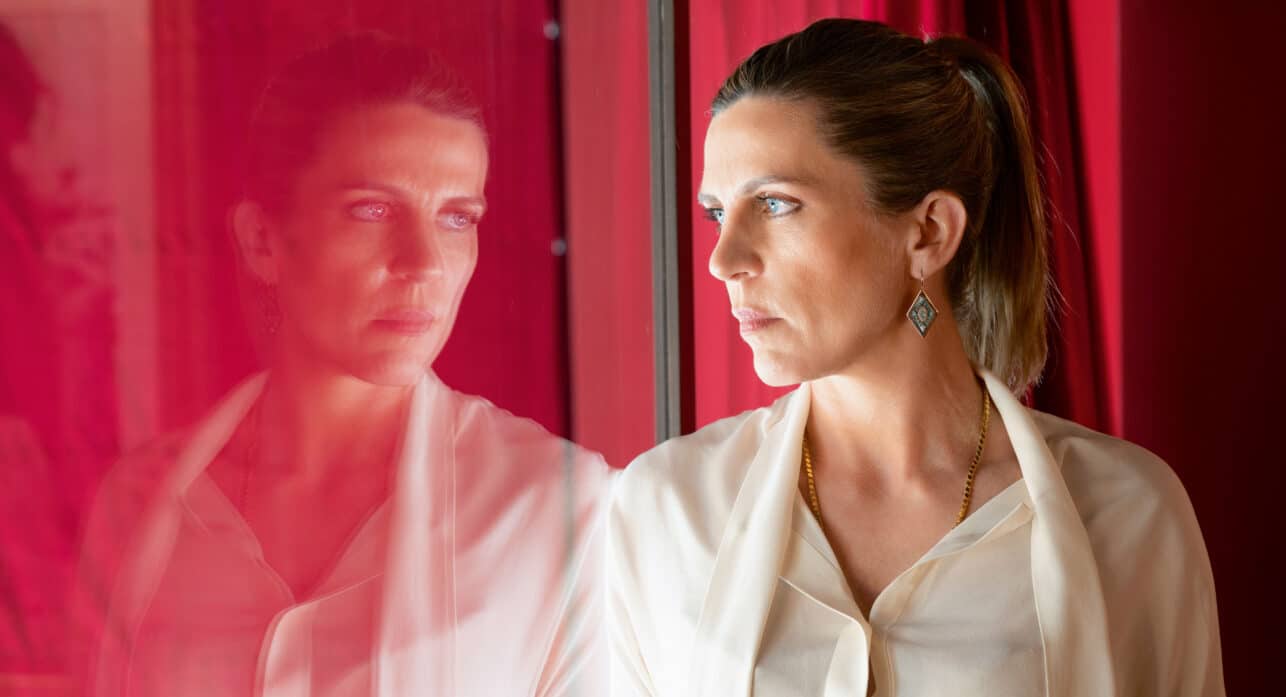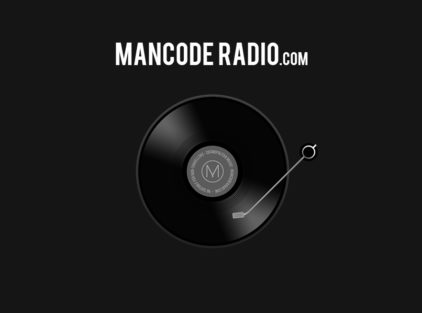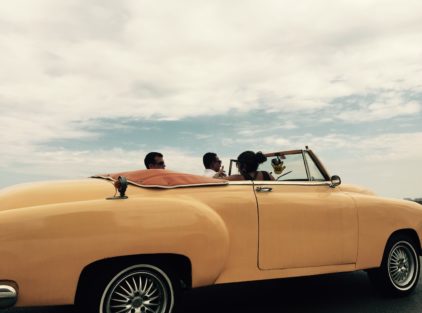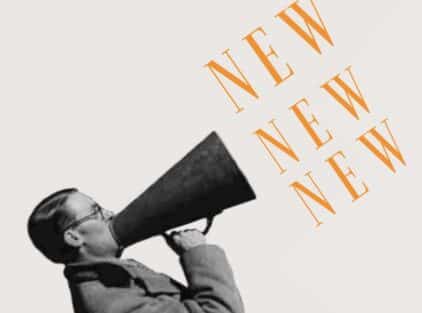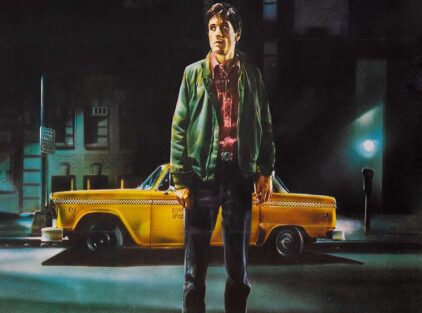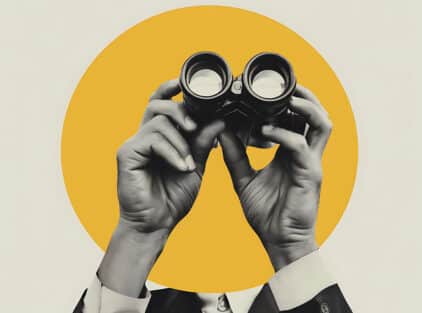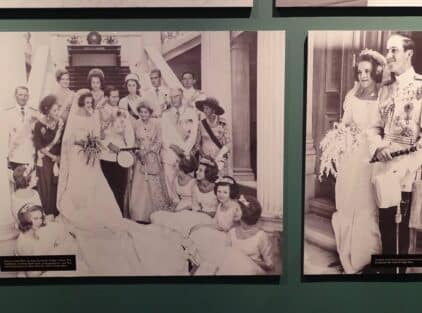She came to my office to do the interview… She was ten minutes late and apologized twenty times.
Noble, with flowing speech, comfortable, confident, daring, speaks fast, tries to translate words in Greek, remembers describes and relives images from reports she made in difficult countries with “ignorance of danger”, honest, does not mince her words, seems fearless.
by Labis Tagmatarhis
The interview started about what is happening in Europe. Correspondent in Brussels herself for many years during the crisis, she knows the ins and outs of this complex system. But the conversation, for better of for worse, quickly went elsewhere.
If you want to know how a journalist becomes a correspondent for one of the biggest newspapers in the world, if you want to know what happened in a juvenile prison in Peru, if you want to know how Argentina’s finance minister resigned because of it, if you want to read about wild reporting in Egypt and the miracle man in Haiti, you are on the right pages…
The movie starts.
Opening Titles:
Eleni Varvitsioti, of the well-known political family… the one who at the lunch tables, during the political discussions with her three brothers and the minister father “didn’t have time to take the floor and that’s why “instead of talking she prefers to listen to other people’s stories”
Award-winning journalist.
She already has a book in her biography about the Greek financial crisis, “The Last Bluff” which she co-authored with Ms. Viktoria Dendrinou and was named the book of the year in 2019.
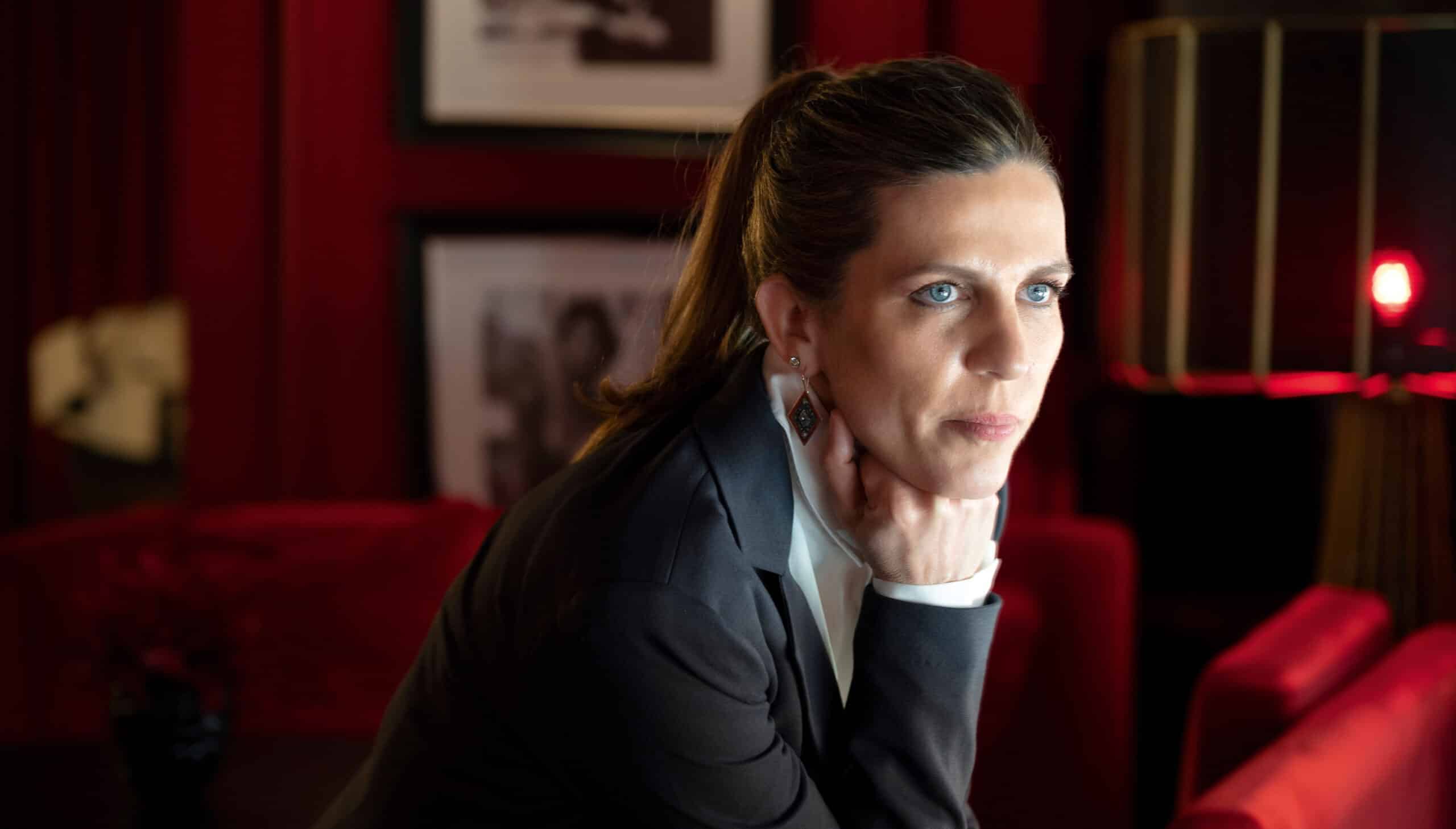
-Your first job?
– “The Folders” by Papahelas, along with Telloglou and Papaioannou…
-The first report?
-They were the missing persons of Cyprus. There was…
– A big issue!
– Yes. Which took me almost a year to figure out, because the theory was wrong that a missing person, Christakis Loizou, was still alive as he had been kidnapped as a baby by the Turks during the invasion. I was sleeping and waking up with the thought of Christakis. I had been…I don’t know how many times to Cyprus.
– And what did the report bring out?
– That it doesn’t exist. Apparently there were rings that took advantage of families looking for their own, and for years gave them false hope for a fee…
-First time you saw your name written in the end credits…
– Oh, yes.
-What emotion does it produce?
– The feeling that others see your work is very strong. The first time we had a meeting about the topics of the show, Alexis Papachelas came back and said to me “What do you think?” and I wondered “Who is he talking to? I turned around to see if anyone else was there.”
-Why did you wonder?
-I grew up in a house with three brothers, boys, quite older. Only political discussions at the table. I was never able to speak. I basically couldn’t keep up. That’s why I think I became very good at listening to stories.
-Tell me a nice story you heard.
-No. I’ll tell you better about a crazy show we did in Argentina. If you remember in 2013 there was a debate whether we should follow the example of Argentina or not, that is, whether it would be better not to pay our debts to the IMF.
– What SYRIZA was supporting then?
-Yes. I was speaking Spanish and Alexis Papahelas says to me “Go to Argentina and do a report on what happened in the country after their own economic crisis”.
–And you arrive in nearby Argentina?
Yes. I’m doing a series of interviews. The only government official who agrees to speak to me is the finance minister after I have called his office 20 times.
-Thank God…
– It’s time for the interview. They tell me it will be late. An hour, two hours pass. Three hours pass. He comes in buff.
-The main problem of Argentina then was the high inflation?
-Correctly. So the first question is what is inflation in Argentina? There was talk that the government is giving lower numbers to beautify the state of the economy. He says, it’s close to 10.2. Second question. The IMF will penalize you for incorrect statistics. What will you do about it? Stops. His assistant is starting to make sense to me. The minister says to me “I want to leave”. I say “ahora porque?” we just started! He tells me “Turn off the camera”. The camera closes but continues and records only audio. There he says “your questions are too difficult and I have to go.” I’m tired”. I am calling in Athens. I say “We are ruined.” I have a report that is one sided and a finance minister who left in the middle of the interview because he didn’t like the questions…
-And what did you do; Did the trip suck?
– I return to Athens and the show plays after months, with sound only, at the point where the minister does not answer the question and leaves. I wake up the next day and see thousands of followers on Twitter.
– They had seen the clip…
-Yes. The minister’s “I want to leave” is going viral in the country. The show made the front page of all Argentine newspapers, appeared in their newspapers and radio stations. With his answer, not only was it revealed that the inflation was higher than what was presented until then, but also the minister was forced to resign a few days later.
– Where did you study?
-In America.
-And when did you decide to become a journalist?
– I was in India on an educational trip with the university.
-How did you end up in India?
-We boarded a ship as a group of students for four months and went around the world. The ship stopped at various ports. So at some point we found ourselves in Chennai, India, in a village inhabited by the Dalit caste, those who until recently were called Untouchables.
-Why were they called that?
-Why are they considered “dirty”, if someone touches them they are supposed to be infected. They are the lowest caste in India, socially isolated, they are modern day slaves, they usually work on large tracts of land, where they are paid little and when something goes wrong, they get sick or need something they put a huge debt on themselves, which is passed down from generation to generation…
– How did you become a journalist, I asked.
-So I am in one of those villages where the houses are mud huts, the people are incredibly happy with our presence, they feel very honored that we foreigners are there. At night we have put the sleeping bags in the unique building with a concrete floor, among all the insects you can imagine and of course without electricity.
-That’s not what I asked!
-And the village’s teacher comes… and tells us “Make a circle” and lights a candle. I tell you and I shudder. Immediately the whole room from black darkness is illuminated. “Do you see with a candle how much light can be created?” And at that moment I felt like a current running through my body. I immediately thought that just as a candle can light up a dark room, so a single voice can be heard and make a big difference. In my mind from that moment it was clear that I had to give a voice to those who don’t have one.
– I think you did it…
– I was thinking that I can’t go back and my life will be the same. I have to do something. Something small. It doesn’t matter, but I have to do something.
– To become a small candle.
– Yes, and as much light as this can spread.
-Is that where the decision is made?
– That’s where the decision is made.
-Now you work for the Financial Times.
– Yes, I am the correspondent for Greece and Cyprus. And at the same time I am also an analyst on the ANT1 report.
-And what is the Financial Times correspondent doing in Greece and Cyprus? I mean apart from writing and sending news.
-Besides the news, there are also many bigger projects.
-Tell me one that’s running now.
– We are making a big podcast about Qatar gate. About what happened.
-When you say big?
-Almost a year of research. The purpose is to come out before the European elections. So I have the part in which Greece is involved, Eva Kaili, etc. At the same time I am doing research, which I am working on in parallel with the current affairs.
-And now what investigation are you running?
– The adulteration of honey. It is the fifth most adulterated product on the planet, if you can think…
– I admit that I didn’t know, but nothing to do with Qatar…
-You have to have very good reflexes and you have to be informed about many different objects.
– How does all this begin?
-From the “Files” of Alexis Papachelas.
That’s where I started at the age of 22. And I stayed ten years. When the show stopped, I suddenly found myself in Brussels as a correspondent for Kathimerini and SKAI. I had not written for a newspaper. And the times I had appeared live on television were few and far between. Ah…I had no idea about the European ones either.
– And how long did you stay there?
-Six years. When I went, I had to read and learn a lot to understand how Europe works. It was at the beginning of 2014 during the prime ministership of Antonis Samaras that there was some normality. If you remember, Greece had just entered the markets… And then, the storm started.
– Seems like you didn’t get bored at all…
– I didn’t have time to get bored!
– When did the storm get fierce?
– From the summer of ’14 it looked like it would be difficult to close that famous rating. The lenders were demanding a lot and did not want to back down and at the same time in Greece there was also a reform fatigue.
-Now in cold blood and with all the experience you have after the book you wrote, was this whole first half of 2015 a product of inexperience? Was it naivety? Was it arrogance? Was it arrogance? Was it ignorance?
-I think you said all the right words. To a large extent it was inexperience and ignorance of danger.
– Are you ignorant of danger?
-Probably yes.
-Ignorance of danger, page one.
-When I decided to go to a volunteer program in Peru. I left Boston to work in a juvenile detention center. I didn’t think much of it, in five days I was in Cusco…
I had already spent half my money before I even arrived. I bought a camera. Apart from the fact that I didn’t know anyone there, I didn’t know where I was going to stay or exactly what I was going to do. For a week I can’t move until I acclimatize as the city of Cusco is at a very high altitude. I finally get to the prison and I say “Hello. I made it.”
– It looks like a movie…
– Well, I’m starting to work in these prisons with two other female volunteers, and slowly I’m starting to shoot with the camera. I’m staying for 3 months and I’m making a documentary about the children’s lives there.
-How was it there?
-They were small children, boys living on the streets, who even at 14 years old might have murdered their dad, some might have raped, some might have stolen….
-What would you say is your strongest feature as a reporter?
-I think I’m very good at interacting with people.
-People trust you…
-Yes. I think I know how to approach someone and how to make them feel comfortable talking to me. Whether it is a European official who will trust me with a secret document or an Indian farmer who will trust me with his story.
-Is this a talent? What is talent?
– When you marry your passion with a special inclination.
– How do you get hired at the Financial Times?
– It is pretty hard.
– Did you go through an interview?
– Interview rounds. There, contrary to what one might think, my name was an obstacle. Because they needed to be convinced of my impartiality and journalistic integrity.
-Where did you feel fear?
-In Cairo. It’s 2012, the “Arab Spring” has started if you remember back then.
-Very well.
-These are the days when the huge demonstrations are taking place in the country with the aim of overthrowing the 30-year-old president of Egypt, Hosni Mubarak. And they want someone from SKAI to go cover. I say. Yes. Of course”. And I find myself in one night in Cairo alone. No cameraman. No translator. I am in Tahrir Square… This was not a very smart choice.
-And how did you send the responses?
-The Associated Press had a studio, where I would go and send. Every night I heard gunshots from my room, the place was boiling.
– You wouldn’t call the conditions easy…
-The Mubarak regime did not want criticism from foreign journalists at all. So we were under persecution. At some point my colleague from Kathimerini, Petros Papakonstantinou, comes one morning with a stabbed leg and a split open head. I tell him “Let’s go to the hospital immediately”. As I wait for him to be stitched up, a policeman comes and shouts to me: “Come with us now!”. I knew that if I was in the police station I would never come out again. I start yelling, “No way! I am not going anywhere!”. I get my manager who contacts the Greek ambassador. He tells me: “The ambassador is coming now.” Anyway, I’m saving myself from there.
-And from here?
– A few days later I’m in Tahrir Square… I have the camera and I’m shooting – I’ve now also acquired a translator. Slowly the crowd begins to surround me. Within 5 minutes, about 60 Egyptians have gathered, and they start shouting at me. “Stop pulling!” I obviously don’t understand, I just hear the translator shouting at me: “Eleni, run!” And I start running and have an angry crowd behind me. I turn into an alley and realize that it is a dead end. Sticking to the wall, someone takes my video camera and throws it down, and someone breaks my camera… Me frantically ringing the bell of a gate! A man opens the door for me and I enter. He saved me. I was shaking all over and even now as I tell you my hands are shaking…
– Would you describe yourself as bold?
– I am adventurous and daring.
-What is it that makes you not afraid?
-I think very often that life is short and that after all I have nothing to lose. What will I lose?
-Your life. Be it the little one or the big one…
– Okay. Yes. But my mind does not go to evil. I had a mom who raised me without ever putting evil in her mind. He never said to me, “Watch out. There is such a danger.”
– But what did he tell you that you keep it as a talisman?
– That “life is for the brave.”
-Your dad ;
– And my dad didn’t scare me ever, quite the opposite actually. He usually mumbled something when I told him my plans and it ended with “do whatever you think”.
– Like all fathers, the wise Mr. Giannis…
-As a fourth child, I grew up somewhat in the automatic. I did everything on my own from a young age, so I developed a great sense of freedom and independence.
-Do you remember your first mission?
-It was when the devastating earthquake happened in Haiti. Nobody wanted to go to SKAI. Not even a cameraman. And they say “Do you want to go?” I say yes”. And the editor-in-chief of the show, Angelos Petropoulos, my close friend…
-Nice story…
-Crazy story… How we flew, what we flew with, where we landed, how we left the airport, where we lived. The city was leveled…
-Where did you stay?
-In the parking lot of a hotel in the car for a few days… That’s where all of CNN stayed, in normal rooms, not like us. Christiane Amanpour also lived there.
-The director of CNN?
-Yes, the journalist I admire the most. I met her there and told her that her work was one of the main reasons I became a journalist.
– Apparently he didn’t recognize you, huh?
-Of course… 10 days have passed since the earthquake and one morning we learn that they heard someone alive in the ruins. We are running… Angel and I, and we have the Greek rescue team with us. We are the first on the scene, we set up the tripod, the camera, and after an hour, CNN, the BBC, the biggest networks in the world come next to us…
-Colleagues!
– The Greek rescue team enters the wreckage first. We start broadcasting live and every now and then the Greek leader of the live team came and informed us how they were progressing. And they manage to pull the man, who is the miracle of Haiti, alive from the wreckage. And we, the two rookies from Greece, face to face to have the most complete report.
– Nice moments, unique. Aren’t you young to have done so much? I mean to have so many experiences?
-Why does this matter?
– It may not… But are you chasing your luck?
– I tell you, life is short. You have to live it every moment.
-Thank you very much!
– Thank you very much too!
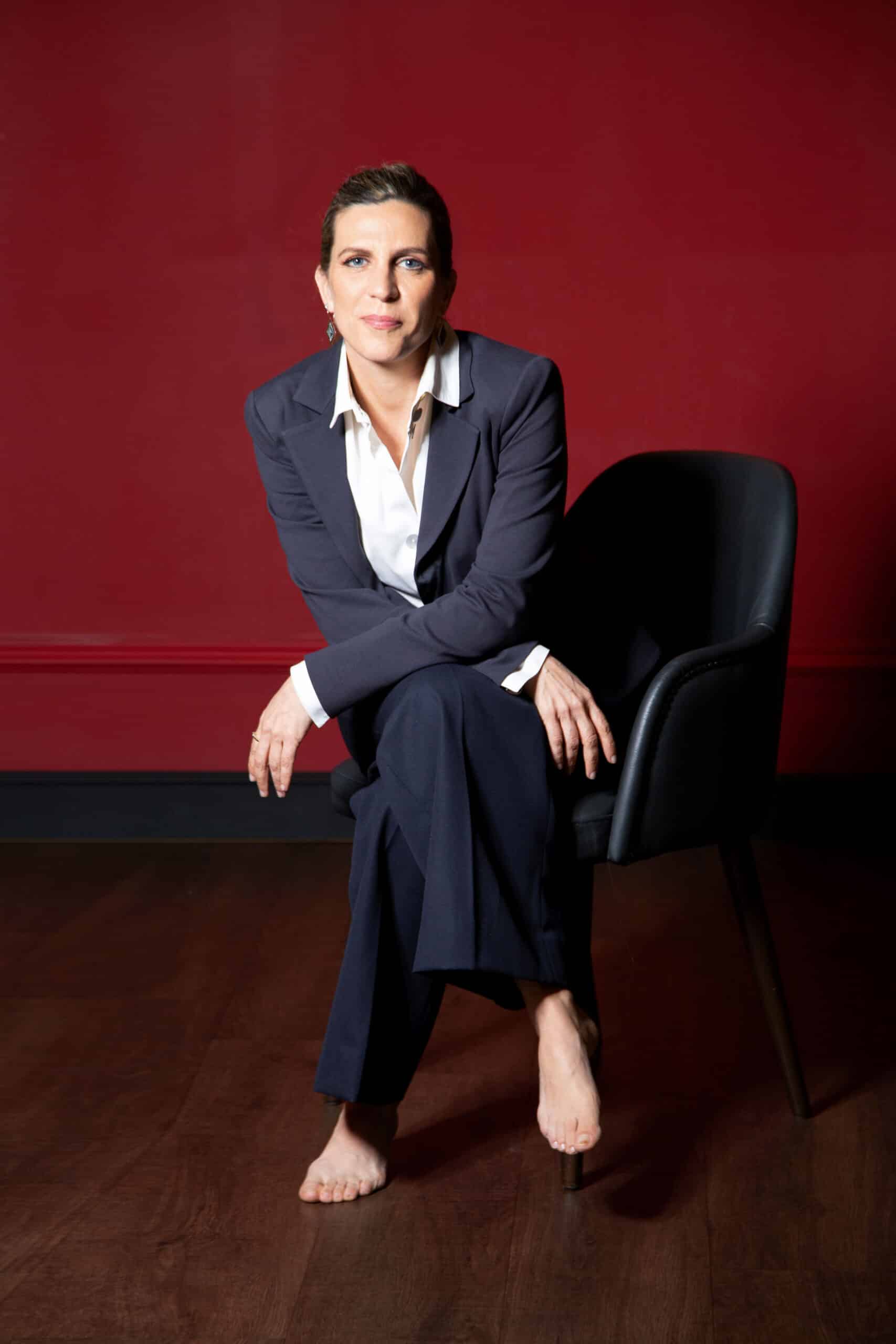
Photos: Yannis Vastardis
